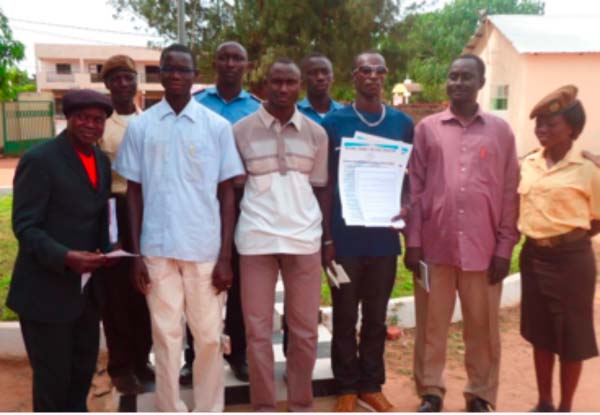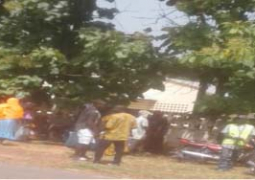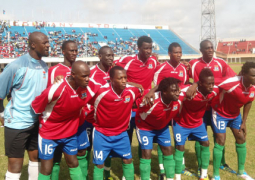
The targeted police stations included Crab Island Police Station, Bakoteh Police Station, Kairaba Police Station, Brikama Police Station, Sibanor Police Station, Soma Police Station, Bureng Police Station, Barra Police Station, Farafenni Police Station, Kuntaur Police Station, Kaur Police Station, Bansang Police Station, Jareng Police Station, Bakadagi Police Station, and Basse Police Station.
In presenting a paper during a sensitization with the Kairaba Police Station officers on Sunday, the NCCE programme officer, Yusupha Bojang, explained briefly about NCCE, saying it was created as an independent non-partisan council under the constitution to design and coordinate civil education programmes and to serve as the advocacy component to the National Governance programme.
According to Mr Bojang, the Act places responsibility on the council for sensitization, information and education of the citizenry, particularly at the grassroots of their rights and responsibilities under the institution.
Mr Bojang spoke about the fundamental human rights and freedoms under the 1997 constitution, adding that in a free and a democratic society, every person is guaranteed certain rights and freedoms usually under the constitution.
According to Mr Bojang, any person in a civilized, free and democratic society is entitled to the enjoyment of these freedoms, but democratic societies, freedoms and rights have limits, which are determined by demands of society itself.
The 1997 constitution attaches such importance to these rights and freedoms, adding that generally human rights are grouped under civil, political, economic and cultural rights.
He cited right to personal liberty, which means nobody should be deprived of his/her personal liberty and security except according to the law.
“Any person who is arrested or detained shall be informed and in any case within three hours, in a language that he or she understands of the reasons for his or her arrest or detention and of his or her right to consult a legal practitioner.”
“Any person arrested or detained and not released, shall be brought, without undue delay before a court and in any event, within seventy-two hours.”
“Any person who is unlawfully arrested or detained by any other person shall be entitled to compensation from that person or from any other or whose behalf that other person was acting.
According to Mr Bojang, every citizen has the right to acquire and own property either alone or in association with others, and such property of any description or interest shall be compulsorily taken possession of or acquired by the state without reasonable justification and compensation.
Right to secure protection of the law, which states that every person who is charged with a criminal offence, shall be presumed innocent until he or she is proved, or has pleaded guilty, shall be given adequate time and facilities for the preparation of his or her defence, shall be permitted to defend himself or herself before the court in person or at his or her own expense, by a legal representative of his or her own choice and no person shall be tried for a criminal offence if he or she shows he or she has been pardoned for that offence.
Read Other Articles In Article (Archive)

More than 30 people arrested at Saredebbo over Mosque construction mishap
Oct 28, 2019, 3:40 PM



